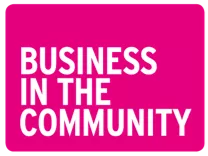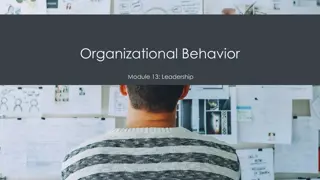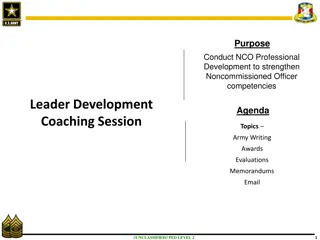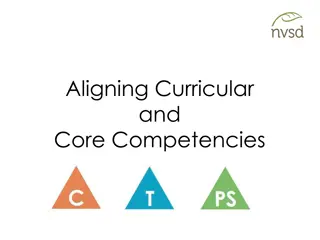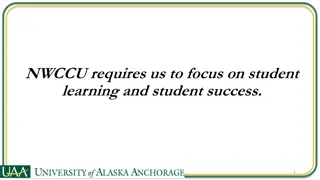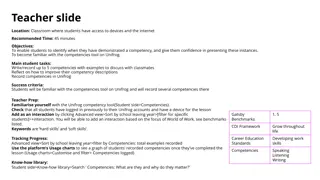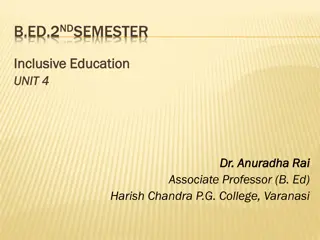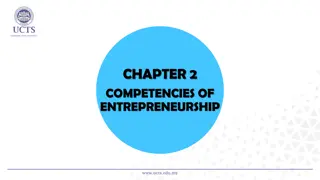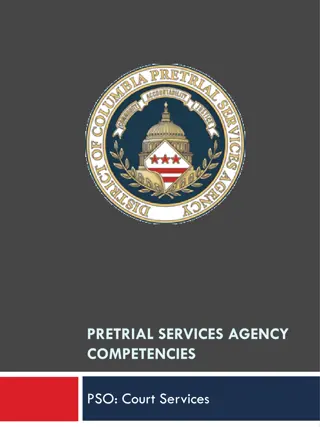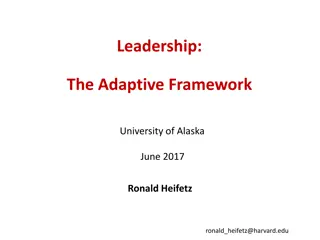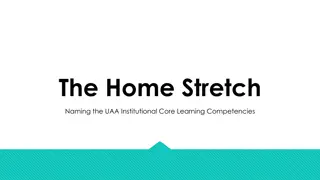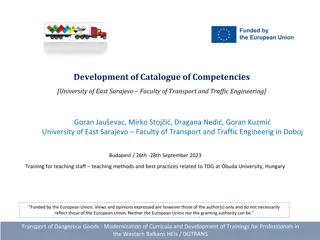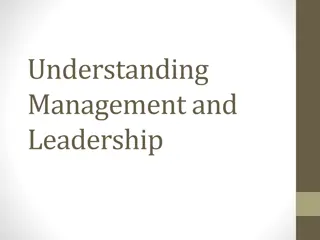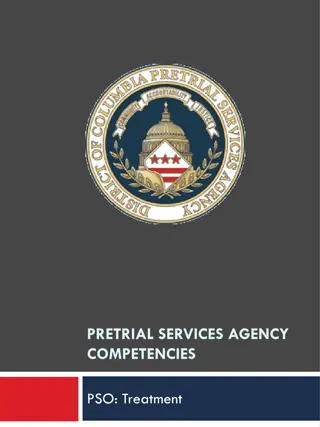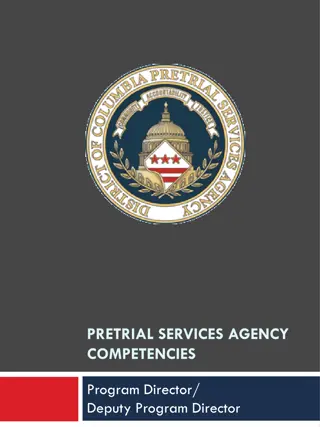Understanding Inclusive Leadership and its Key Competencies
Inclusive leadership entails harnessing the strengths of a diverse workforce to drive organizational success. It involves motivating and inspiring individuals from various backgrounds, fostering adaptability, developing diverse talent, and building inclusive relationships. The three key competencies of a great inclusive leader are adaptability, developing diverse talent, and building inclusive relationships.
Download Presentation

Please find below an Image/Link to download the presentation.
The content on the website is provided AS IS for your information and personal use only. It may not be sold, licensed, or shared on other websites without obtaining consent from the author. Download presentation by click this link. If you encounter any issues during the download, it is possible that the publisher has removed the file from their server.
E N D
Presentation Transcript
How to define what inclusive leadership means in your organisation
What is Inclusive Leadership? The Elevator Pitch Inclusive leaders get the best out of all their people, helping their organisations to succeed in today s complex, diverse national and global environment. By building strong relationships and diverse teams, inclusive leaders are able to increase productivity, performance, innovation and engagement with staff and customers.
Inclusion the essential dimension for today s leaders Leading inclusively motivating and inspiring not only those that are similar to yourself but also those who are different prepares a leader to excel and meet the realities and challenges facing organisations today. Unless leaders are able to work effectively across multiple differences, organisations risk only getting the best performance, ideas and potential from a fraction of the available workforce or failing to win and keep customers and clients or establish effective working relationships across different organisational boundaries and with different stakeholders.
3 key competencies of a great inclusive leader In our 2011 research, Inclusive Leadership from pioneer to mainstream we identified the essential skills, knowledge and behaviours of inclusive leadership. We have translated these into three core inclusive leadership competencies. Adaptability INCLUSIVE LEADERSHIP Developing diverse talent Building inclusive relationships
Adaptability Highly aware of differences and similarities amongst the people you work with, regarding this as a strength and opportunity Seeks out ways of adapting organisational systems and processes that do not support inclusion Capable of adapting to and leading different & flexible approaches to work organisation Capable of flexing your own style & behaviours to match different styles and cultures of others Seeks out ways of adapting organisational systems and processes that do not support inclusion Developing diverse talent Understands the importance of diversity in maximising team & organisational performance Aware of your own role and take responsibility for seeking out and supporting the development of the best talent from a range of backgrounds Provides mentoring, coaching and sponsorship of diverse talent tailored to the individual s needs Is constructive and supportive to others, enabling them to improve their impact and performance, increase their visibility and networks and reach their career goals Has open, non-judgemental career conversations with others, seeking to understand how their career aspirations can fit with the context of their (sometimes changing) personal lives Building inclusive relationships Demonstrates a genuine interest in and respect of differences in other people. Values time spent in getting to know the different drivers, aspirations & development needs of individual team members Aware of your own biases and preferences and capable of minimising the impact of these in leading others, building relationships and making decisions Does not let hierarchy be a barrier in forming an honest and open working relationship Being trusting of others, trustworthy and honest avoiding saying one thing but doing another Creates an environment where individuals feel safe, motivated and empowered to go the extra mile, make improvements and be innovative Constructively and appropriately challenges behaviours and actions in others that do not support inclusion
Inclusive leadership stories Hearing from other inclusive leaders and from people who talk about their inclusive leader helps to bring the competencies to life. In our research, we asked: Tell me about a leader that was for you, a great inclusive leader, what did she/he do that made them inclusive and stand out from other managers and leaders? What impact did they have on your performance and career? Use this question in focus groups to help build a picture of the most critical competencies for inclusive leadership in your organisation.
Inclusive leaders in action I was more motivated I didn t mind working longer and harder in the office. She shared information and helped me raise my profile to build me up it improved the quality of my work. I had all the necessary information not on a need to know basis. (female) My whole team don t fit the mould. When I built the team what I inherited was very male dominated so I set out to look for different people. I ve turned this male dominated geeky team into a more balanced highly effective team of men and women with different skills. Before this happened and he gave me this support I felt I wasn t being recognised for what I m contributing to the firm. I m not an outgoing person I don t go to people and I often get overlooked. I m too shy to promote myself. The best months of the year have been the last two months since his sponsorship because I feel valued and more motivated. I got called in to two top guys before I was always overlooked they d never spoken to me before. He knew about all the stuff I d been doing my sponsor had filled them in. My boss really challenged me on my career plans. We discussed what happens if I want to start a family I was always taught not to bring it up...We talked openly about them and how I could fit my personal life with my career aspirations. He taught me to ask for what I want increased my self-belief and my confidence. The family thing came up because I was being asked about overseas assignments and I was giving bland responses and avoiding things. He said I want to support you I understand it s important. He didn t dismiss me he encouraged me. I m now openly gay with my managers it s taken time I m trying to be more so. People know you re hiding something it s easier to be out. (female)
Defining inclusive leadership in your organisation Have you gathered inclusive leadership stories to help define the right competency descriptors for your organisation? Does the elevator pitch for inclusive leadership grab people s attention and is it understood in your organisation? How might you need to tailor it to fit your culture, context and priorities? Are the three inclusive leadership competencies explicitly set out in your own leadership competency framework? Should any of the inclusive leadership competencies be added to your existing framework or any of the competency descriptors embedded in your existing competencies? Are you placing enough value and attention on the inclusive leadership competencies in how you recruit, appraise, promote and reward leaders?



